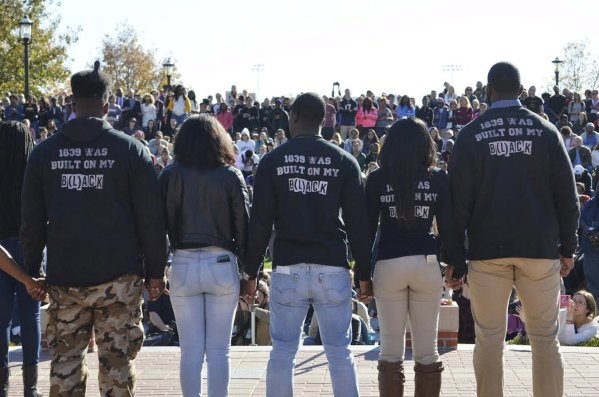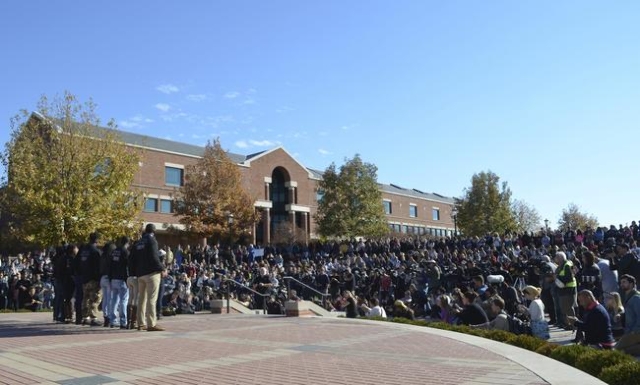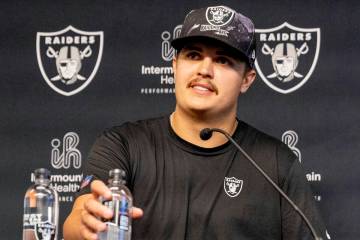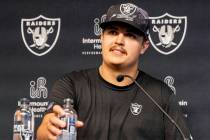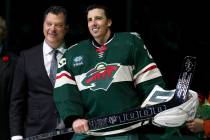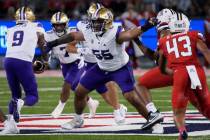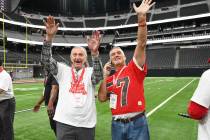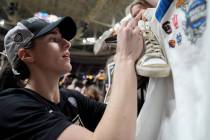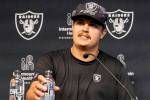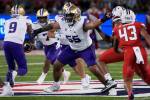Protesting Missouri football players prove the power of sports
By now, you have heard about the day in October when protesters blocked the car of Tim Wolfe during a homecoming parade. You have come to know that 10 days later, a group named Concerned Student 1950 — named for the year African-American students were first admitted to the University of Missouri — issued a list of demands to Wolfe.
By now, you recognize the name Jonathan Butler, the grad student who went on a hunger strike and would not eat until Wolfe resigned.
You know about all of it, in large part, because of one picture.
One tweet.
One example of the power sports owns in matters of social unrest.
The fact Wolfe stepped down as Missouri president on Monday over mounting protests in relation to the poor handling of racial incidents on campus isn't entirely because of the school's football program threatening to boycott all related activities, although there are few sturdier threats than losing north of $1 million for canceling a scheduled game such as the one against Brigham Young this week.
The same is true for Chancellor R. Bowen Loftin departing his position later in the day. Football didn't have everything to do with that. Just almost everything.
Fact: If Gary Pinkel's team wasn't the hammer that brought some level of local attention to what was happening in Columbia, Missouri, it was absolutely the final and most significant nail that cast the nation's eye toward the place where for the first time in decades the actions of students directly led to forcing out a university president.
Images can be incredibly powerful. They stand the test of time. They help intact change.
When they turned to face the American flag in Mexico City in 1968 and each held aloft a black-gloved fist, Tommie Smith and Juan Carlos not only made one of the most openly political statements in the history of the modern Olympic Games, but what Smith later termed a "human rights salute" remains one of the most iconic depictions of the black power movement. It was a sports moment that helped alter the world.
On Sunday, Pinkel tweeted a photo of football players and coaches, locked arm-and-arm, with this message: "The Mizzou Family stands as one. We are united. We are behind our players."#ConcernedStudent1950.
And then the country took notice.
What the Missouri case does, in part, is shine a brighter light on the influence sports owns off the fields of play. Specifically, the power, when used appropriately, that athletes can wield in support of those causes that need a dominant voice.
How much had you heard about the fraternity at Oklahoma whose members in March were caught on video using a derogatory term for blacks and referenced lynching until the school's football team refused to practice for a week and demanded action, which the university took in severing ties with the chapter? Wasn't the most memorable image of that time coach Bob Stoops and his players holding a silent protest?
Do you believe an attempt to unionize football players at Northwestern last year would have made the same impact and received the same level of attention nationally had it not been led by and for athletes?
Would the situation at Illinois — where allegations of player abuse within the football program were investigated — ultimately have been addressed and resolved, leading to the dismissal of a head coach and this week an athletic director, had an offensive lineman not tweeted about the situation last spring?
Gordon Gee remains one of the pre-eminent buffoons of higher learning in this country, now president of West Virginia but holding the same position at Ohio State four years ago. That's when he said of embattled football coach Jim Tressel: "I hope he doesn't fire me."
Gee was rightly blasted for his comments, but within them remained a universal truth when it comes to those intimately involved in major college sports: Their power, fair or not, is undeniable.
This includes, as we saw at Missouri this week, the student-athlete.
More than anything else, the resignation of a university president and the decision by a chancellor to take a new job as director of facility development remind those who led the protests that their collective voices can be heard and at least begin the process of creating a more tolerant existence.
A precedent has been set, and don't think for a second officials at countless schools across the country aren't already rethinking how they deal with athletes in such moments of controversy.
Because while a university president's car being blocked and a grad student going on a hunger strike at a school where just 7 percent of more than 35,000 are black might have earned a spot in the local news or across the state, the nation didn't take notice until a football coach tweeted a certain picture and message.
That's the power of sports in matters of social unrest.
And given how things ultimately played out at Missouri, it is a level of influence by athletes that will only grow and strengthen from this moment forward.
That can be a great thing if approached responsibly.
Let's hope any who protest next follow the lead set by those in Columbia.
Ed Graney can be reached at egraney@reviewjournal.com or 702-383-4618. He can be a heard on "Seat and Ed" on Fox Sports 1340 from 2 p.m. to 4 p.m. Monday through Friday. On Twitter: @edgraney.



